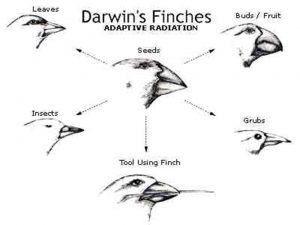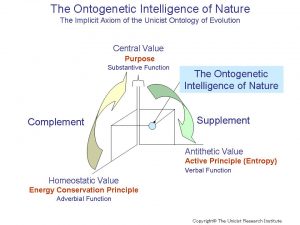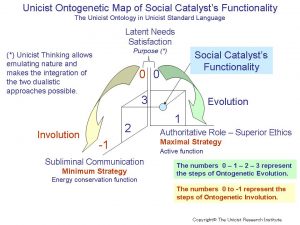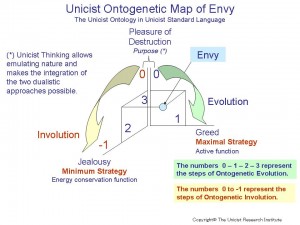The question answered by The Unicist Theory of Evolution is how evolution is produced and how it can be anticipated to influence as far as it is possible.
 When talking about evolution, we always refer to the evolution of a reality that is regulated by the multiple concepts organizing its “unified field”.
When talking about evolution, we always refer to the evolution of a reality that is regulated by the multiple concepts organizing its “unified field”.
Charles Darwin demonstrated the adaptation process of species that, having the same structural constitution, develop adaptive changes to live in a certain environment. It is necessary to comprehend that the evolution of species has a materialistic origin.
Habit is hereditary with plants, as in the period of flowering, in the amount of rain requisite for seeds to germinate, in the time of sleep, &c., and this leads me to say a few words on acclimatisation. As it is extremely common for species of the same genus to inhabit very hot and very cold countries, and as I believe that all the species of the same genus have descended from a single parent, if this view be correct, acclimatisation must be readily effected during long-continued descent. It is notorious that each species is adapted to the climate of its own home: species from an arctic or even from a temperate region cannot endure a tropical climate, or conversely. (Charles Darwin: The Origin of Species)
Evolution always occurs by the “verbal function effect”. Adaptation to the environment is lost when the action where the adverbial function is materialized stops being functional to the existence of a concept in its current state.
In this case, there are two possibilities: either the adverbial function compensates the dysfunctionality or it does not.
In order to adjust this, the adverbial function starts up the verbal function it has as sub-concept of the original concept. This compensation may be reached or not.
If reached, there is an adjustment effect which is functional to the balance at a given time and let repairing or self-repairing mechanisms adjust the dysfunctionality.
When there are no chances of repair, the balance of the credibility area must have changed in the case of an extrinsic concept, or there must have been a change in the functionality area when dealing with an intrinsic concept.
It may also happen that the adverbial function (homeostasis) cannot compensate the unbalance situation produced by the dysfunctionality of the verbal function. Should that be the case, there is a modification of the substantive function.
In this case, a mutation must have taken place. When purposes change mutation occur.
Mutations may be qualitative or structural. By qualitative mutations we mean those that modify the quality of the same structural purpose.
Structural mutations are those where the purpose changes completely. Structural mutations frequently occur when, in chaotic situations, there appears an external gravitating force which intends to “absorb” a unified field.
It is very difficult to know exactly when the mutation will take place and what it will result in.
What it is possible indeed is to build alternative scenarios which allow a better adaptation to the environment.
Peter Belohlavek
NOTE: The Unicist Research Institute was the pioneer in using a logical approach to deal with evolution and became a private global decentralized world-class research organization in the field of human adaptive systems. http://www.unicist.org
 The elements that are part of an entity in nature are integrated by supplementary and complementary relationships. There exist no other types of relationships in nature.
The elements that are part of an entity in nature are integrated by supplementary and complementary relationships. There exist no other types of relationships in nature.

